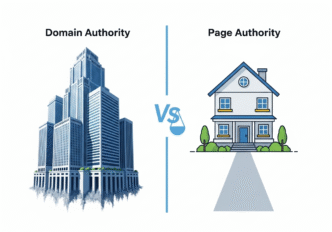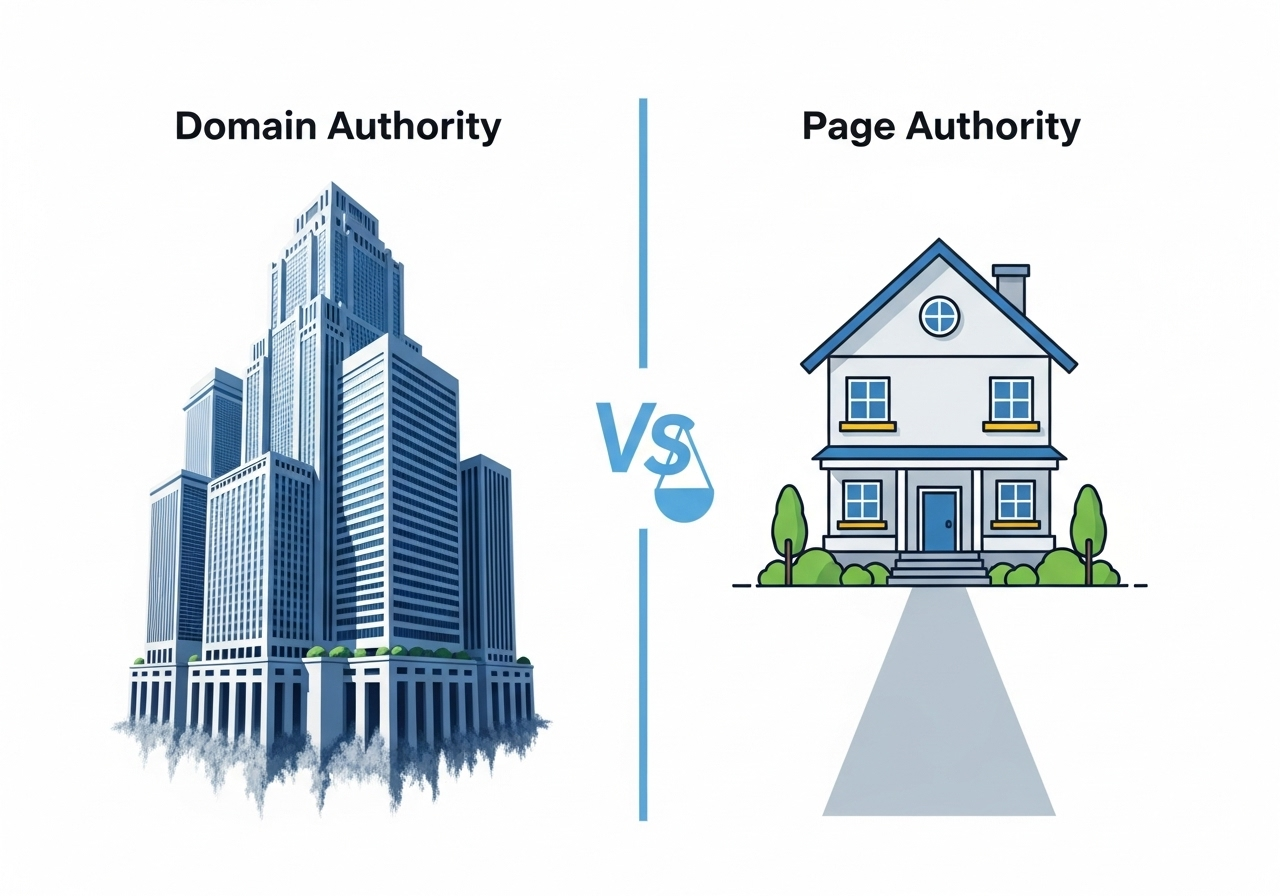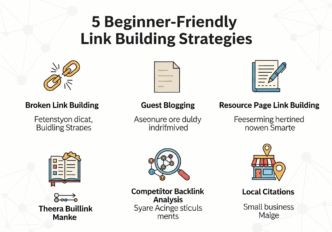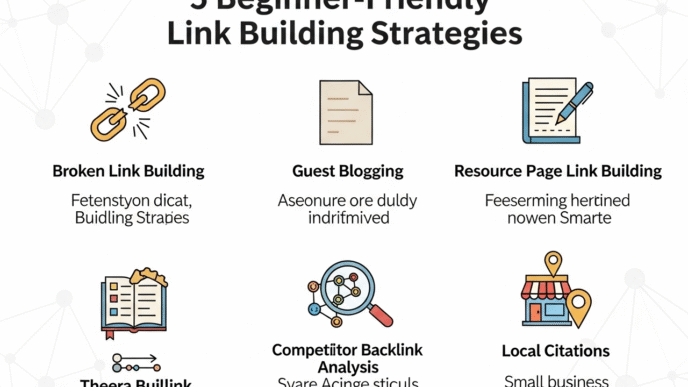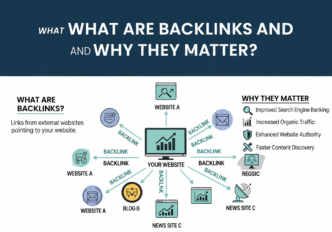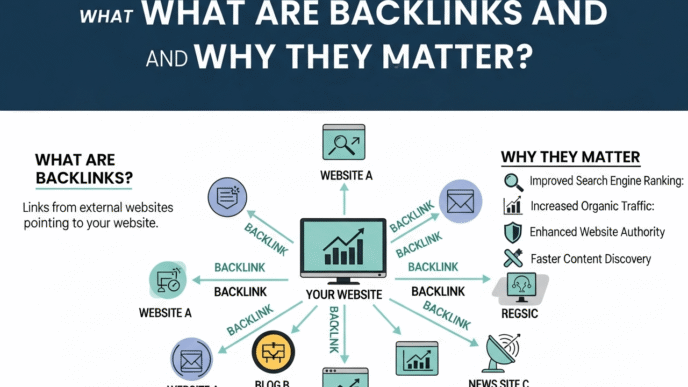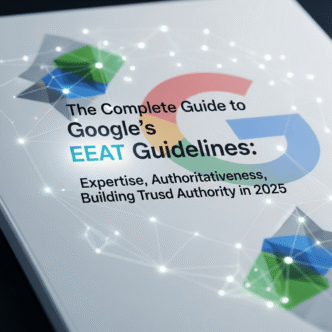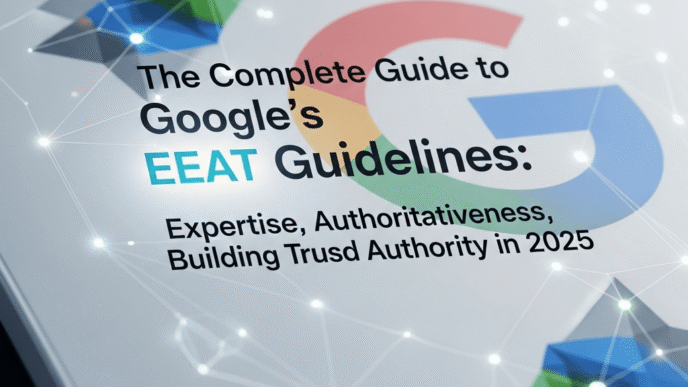Ever stared at your SEO dashboard and wondered why your page is ranking #15 when your competitor’s seemingly weaker content sits pretty at #3? The answer might be hiding in two little acronyms that make SEO professionals either jump for joy or curse under their breath: DA and PA.
Understanding domain authority vs page authority is like knowing the difference between your overall reputation and your expertise in a specific topic. One affects the other, but they’re not the same thing – and mixing them up can lead to some seriously misguided SEO strategies that waste months of effort.
Table of Contents
Toggle
What Exactly Are Domain Authority and Page Authority?
Domain Authority (DA) and Page Authority (PA) are Moz metrics that predict how well a website or specific page will rank in search engine results. Think of them as your website’s credit score – they give you a snapshot of your ranking potential, but they’re not the final word on success.
Domain Authority measures the overall strength of your entire domain. It’s like your website’s general reputation in the neighborhood. Page Authority, on the other hand, focuses on the ranking strength of individual pages. It’s more like how well-known you are for your chocolate chip cookies specifically.
Both metrics use a scale from 1 to 100, where higher scores indicate greater link authority and ranking potential. But here’s where it gets interesting – these scores are logarithmic, meaning jumping from 20 to 30 is much easier than climbing from 70 to 80.
Pro Tip: “Don’t chase DA and PA scores for their own sake. These are predictive metrics, not ranking factors. Focus on the activities that improve these scores – quality content and earning authoritative links – rather than the scores themselves.” – SEO Specialist at Moz
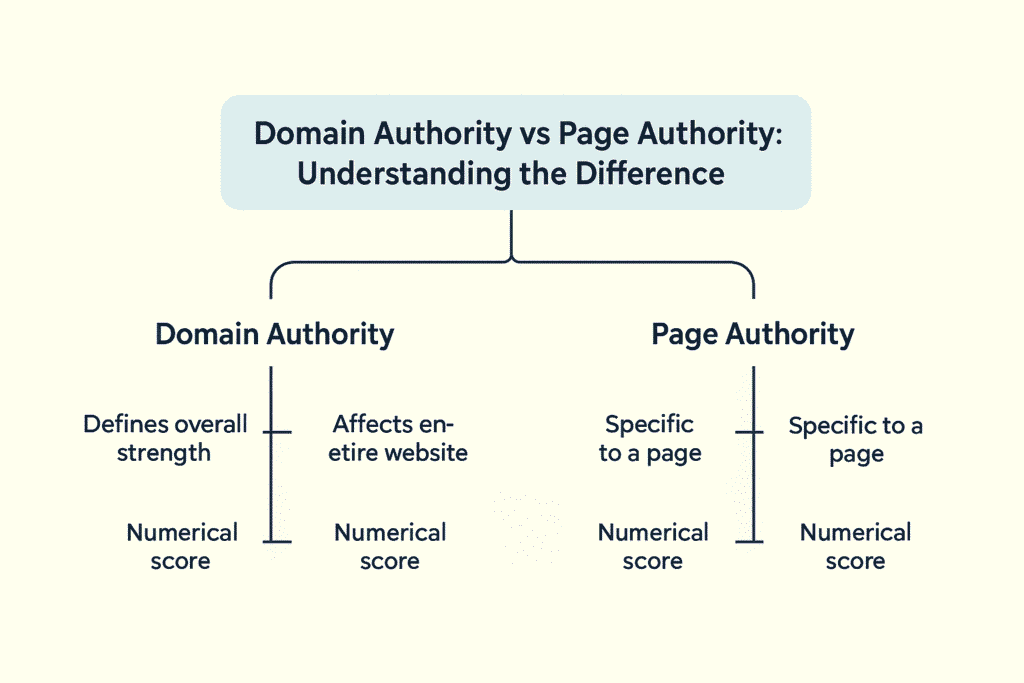
Difference Between Domain Authority and Page Authority: Breaking It Down
The confusion between DA and PA is understandable since they’re related, but understanding their differences is crucial for effective SEO strategy.
Domain Authority (DA) Explained
Domain Authority looks at your entire website’s authority score. It considers factors like:
- The total number of linking domains pointing to your site
- The quality and authority of those linking sites
- Your website’s overall link profile strength
- The trustworthiness signals across your domain
Think of website authority like a university’s reputation. Harvard has high domain authority because it’s well-established, has many quality connections, and is trusted across multiple fields.
Page Authority (PA) Explained
Page Authority focuses solely on an individual page’s ranking potential. It evaluates:
- Links pointing specifically to that page
- The quality of those page-specific links
- Internal linking structure to that page
- Content relevance and optimization signals
Page strength is more like a specific professor’s reputation. They might be a world-renowned expert in quantum physics (high PA for physics content) even if they work at a lesser-known university (lower DA).
Domain Authority vs Page Authority: Which is Better for SEO?
This question is like asking whether your heart or brain is more important – they both matter, but in different ways.
Domain Authority provides the foundation. A strong DA gives all your pages a baseline boost in ranking potential. It’s particularly important for:
- Competing in highly competitive niches
- Building trust with search engines quickly
- Supporting weaker pages with the domain’s overall authority
- Long-term SEO sustainability
Page Authority drives specific rankings. High PA can help individual pages rank well even with moderate DA. It’s crucial for:
- Targeting specific keywords effectively
- Maximizing the potential of your best content
- Competing for featured snippets and top positions
- Converting your domain authority into actual traffic
Real-World Example: David vs Goliath
Consider a personal finance blog with DA 35 trying to rank for “best credit cards.” They’re competing against sites like Credit Karma (DA 85+).
The smart strategy? Target long-tail keywords where page authority matters more than domain strength. Their comprehensive guide on “best credit cards for college students with no credit history” might outrank the giants because the page-specific content and links are superior, even with lower overall domain authority.
Understanding DA and PA Metrics for SEO: The Complete Breakdown
Let’s dive deeper into how these authority metrics actually work and what influences them.
How Moz Calculates These Scores
Both metrics use machine learning models that consider over 40 ranking factors. The algorithms analyze:
- Link Equity Distribution: How authority flows through links
- Link Quality Assessment: The trustworthiness of linking domains
- Content Relevance Signals: Topical authority and expertise
- Technical SEO Factors: Site structure and crawlability
DA PA Comparison Table
| Factor | Domain Authority (DA) | Page Authority (PA) |
|---|---|---|
| Scope | Entire domain | Single page |
| Link Focus | All inbound links to domain | Links to specific page |
| Calculation | Root domain + all subdomains | Individual URL only |
| Impact | Affects all pages | Affects single page ranking |
| Stability | Changes slowly | More volatile |
| Range | 1-100 scale | 1-100 scale |
| Primary Use | Competitive analysis | Content optimization |
What is Page Authority in SEO and Why Does It Matter?
Page Authority is your secret weapon for content-focused SEO strategies. While domain authority takes time to build, page authority can be improved relatively quickly with the right approach.
Key Factors That Influence Page Authority
Internal Linking Power: How your own site links to the page matters enormously. Strategic internal linking can boost a page’s authority significantly.
Content Quality and Depth: Comprehensive, well-researched content naturally attracts more links and engagement signals.
External Link Quality: Even a few high-quality backlinks from authoritative sources can dramatically improve page authority.
User Experience Signals: Page load speed, mobile-friendliness, and engagement metrics all contribute to page strength.
Key Statistics That Reveal the Truth About Authority Metrics
The numbers tell a compelling story about the real impact of domain authority and page authority on SEO success:
Authority and Link Building Statistics:
- 95% of pages have zero backlinks, but for the top 100 ranking domains, almost all (92.3%) have at least one backlink
- 65.4% of SEOs think domain authority is more important than the number of links on the target page when it comes to search rankings
- The page ranking #1 on Google has an average of 3.8x more backlinks than other pages
- 32.17% of the websites linking to high-authority sites do so because of their stats pages
Content and Authority Connection:
- Content marketing generates approximately three times as many leads as traditional outbound marketing, but costs 62% less
- Long-form content generates more links, with an average of 77.2% more links than short articles
- Search results with videos drive 157% more organic traffic
AI Impact on Authority Building:
- 47% of marketers are already implementing AI SEO tools to improve search efficiency
- 75% of businesses leverage AI to reduce the time spent on manual tasks like keyword research and meta-tag optimization
- The global AI SEO software tool market is estimated to reach $4.97 billion by 2033 from $1.99 billion in 2024
Case Study: Local Restaurant’s SEO Success
A small Italian restaurant in Denver had a DA of only 25 but created an incredibly detailed guide to “Authentic Italian Pasta Making Techniques.” Through strategic promotion and quality content, this single page achieved a PA of 45 and now ranks #2 for multiple pasta-related keywords, driving significant traffic despite the site’s modest overall authority.
Expert Insight: “Page Authority is your opportunity to punch above your weight class. A well-optimized page with strong content and targeted links can outrank pages from much higher authority domains in specific niches.”
How to Improve Domain Authority Score: Proven Strategies
Building domain strength is a marathon, not a sprint. Here’s how to approach it systematically:
1. Quality Link Building at Scale
- Focus on earning links from diverse, high-authority domains
- Create linkable assets like original research, tools, or comprehensive guides
- Build relationships with industry influencers and publications
- Guest posting on relevant, authoritative sites (but avoid low-quality link farms)
2. Technical SEO Excellence
- Ensure fast loading times across all pages
- Implement proper site structure and navigation
- Fix broken links and 404 errors promptly
- Optimize for mobile-first indexing
3. Content Strategy That Builds Authority
- Publish consistently high-quality, original content
- Cover topics comprehensively within your niche
- Update and refresh existing content regularly
- Create content clusters around main topic themes
4. Internal Linking Optimization
- Link to important pages from high-authority pages on your site
- Use descriptive, keyword-rich anchor text
- Create logical content hierarchies
- Don’t forget to link to newer content from established pages
Practical Tips for Improving Page Authority
Unlike domain authority, page authority can be improved more quickly with focused effort on specific pages.
On-Page Optimization Strategies
Content Depth and Quality: Create the most comprehensive resource on your target topic. Go beyond surface-level information.
Strategic Keyword Targeting: Focus on one primary keyword per page, but include semantic variations naturally.
User Experience Optimization: Fast loading, mobile-friendly, easy navigation – all these factors contribute to page strength.
Link Building for Specific Pages
Resource Page Outreach: Find resource pages in your niche and request inclusion of your content.
Broken Link Building: Identify broken links on relevant sites and suggest your content as a replacement.
HARO (Help a Reporter Out): Respond to journalist queries with expert insights, linking back to your relevant pages.
Strategic Internal Linking: Boost important pages by linking to them from multiple relevant pages on your site.
Pro Strategy: “When building links for page authority, focus on relevance over raw authority. A link from a DA 40 site that’s highly relevant to your topic is often more valuable than a generic link from a DA 60 site.”
Expanded Common Mistakes When Working with Authority Metrics
Beyond the basic mistakes, here are critical pitfalls that can seriously damage your SEO efforts:
1. Obsessing Over Scores Instead of Results
Many SEO professionals get caught up in watching DA and PA numbers instead of focusing on actual rankings and traffic. These metrics are indicators, not goals.
2. Expecting Quick Changes
Domain authority especially changes slowly. Don’t panic if your scores don’t immediately reflect your SEO efforts – good work compounds over time.
3. Ignoring Page Authority for High-DA Sites
Having high domain authority doesn’t automatically mean all your pages will rank well. You still need to optimize individual pages for their target keywords.
4. Comparing Apples to Oranges
Comparing DA scores across different industries can be misleading. A DA 40 legal site might be more impressive than a DA 60 entertainment blog due to industry competition levels.
5. Buying Low-Quality Links for Quick DA Boosts
Links that are from a spammy website can decrease your website’s domain authority. And in some cases, it can even lead to a penalty from Google. Focus on earning quality links instead.
6. Neglecting Technical SEO Foundation
You can’t build authority on a shaky foundation. Poor site structure, slow loading times, and crawl errors will limit your authority growth regardless of your link building efforts.
7. Focusing Only on Homepage DA
Many businesses obsess over their homepage’s authority while neglecting important internal pages. Strategic internal linking and page-specific optimization matter enormously.
8. Misunderstanding Correlation vs. Causation
High DA doesn’t cause high rankings – both are often results of the same good SEO practices. Don’t put the cart before the horse.
Essential External Resources for Authority Building
To deepen your understanding of domain authority vs page authority and implement effective strategies, these authoritative resources provide comprehensive guidance:
- Moz’s Official Domain Authority Guide – The definitive resource from the creators of DA, including calculation methodology and best practices
- Google’s E-E-A-T Guidelines – Official Google documentation on expertise, experience, authoritativeness, and trustworthiness factors
- Ahrefs’ Authority and Link Building Resources – Comprehensive guides on building authority through strategic link building and content marketing
These resources are regularly updated by industry authorities and provide the latest insights on authority building strategies that actually work.
AI and the Future of Authority Metrics in SEO 2025
The integration of artificial intelligence is fundamentally reshaping how we think about domain authority and page authority. Here’s what’s changing and what it means for your SEO strategy:
Machine Learning Revolution in Authority Assessment
AI algorithms are becoming more sophisticated in evaluating website authority. According to recent data, 47% of marketers are already implementing AI SEO tools to improve search efficiency, and this number is growing rapidly.
How AI is Changing Authority Evaluation:
- Semantic Understanding: AI now evaluates content beyond keyword matching, focusing on topical authority and expertise
- Real-time Adjustments: Machine learning models can adapt authority assessments based on user behavior signals
- Cross-platform Authority: AI considers authority signals from social media, citations, and brand mentions across the web
The 2024 Domain Authority Update Impact
The 2024 Domain Authority update introduced new signals and machine learning models, making DA an even more nuanced and predictive measure. This update now incorporates:
- Enhanced link evaluation that privileges relevance and trustworthiness over sheer numbers
- Content quality assessment using natural language processing
- User engagement signals and behavioral data
- Cross-referencing with E-E-A-T (Experience, Expertise, Authoritativeness, Trustworthiness) factors
AI-Powered Tools for Authority Building
The landscape of authority metrics tools is evolving rapidly with AI integration:
Predictive Analysis: AI can now forecast which content types and link building strategies will most effectively improve your authority scores.
Automated Optimization: Tools can automatically identify internal linking opportunities, content gaps, and technical issues affecting authority.
Competitive Intelligence: AI analyzes competitor authority building strategies and identifies opportunities you might miss.
2025 AI Trend Insight: “75% of businesses leverage AI to reduce the time spent on manual tasks like keyword research and meta-tag optimization. The global AI SEO software tool market is estimated to reach $4.97 billion by 2033, representing massive growth in AI-driven authority building tools.”
E-E-A-T and Authority in the AI Era
Google’s E-E-A-T guidelines have become even more critical in the AI era. AI systems can now evaluate:
- Author Credibility: Automated verification of author expertise and credentials
- Content Accuracy: Cross-referencing facts against authoritative databases
- Source Quality: Real-time assessment of citation quality and relevance
The Rise of Entity-Based Authority
AI is shifting focus from domain-wide authority to entity-based authority:
- Topic Clusters: AI identifies and rewards websites that demonstrate comprehensive expertise in specific topics
- Knowledge Graph Integration: Search engines are better at understanding your brand as an entity and its authoritative connections
- Semantic Authority: Building authority around concepts and entities, not just keywords
Preparing for AI-Driven Authority Assessment
To succeed in the AI-powered SEO landscape:
- Invest in Content Depth: Create comprehensive, expert-level content that demonstrates genuine expertise
- Build Author Authority: Develop strong author profiles with verifiable credentials and expertise
- Focus on User Signals: Optimize for engagement metrics that AI algorithms increasingly value
- Leverage Structured Data: Help AI understand your content and authority signals through proper schema markup
Wrapping Up: Your Authority Metrics Action Plan
Understanding domain authority vs page authority isn’t just about knowing two different numbers – it’s about developing a nuanced SEO strategy that leverages both metrics effectively.
Start with your foundation: Build domain authority through consistent quality content, technical excellence, and strategic link building.
Optimize for specifics: Use page authority to target individual keywords and compete in specific niches where you can win.
Monitor and adjust: Track both metrics, but focus more on the activities that improve them rather than the scores themselves.
Remember, these metrics predict ranking potential – they don’t guarantee rankings. The sites winning in search results are those that combine strong authority signals with exceptional user experiences and truly valuable content.
Final Wisdom: “The best SEO strategy treats domain authority and page authority as complementary forces. Build your domain’s overall reputation while simultaneously creating pages that deserve to rank. Authority without relevance is useless, but relevance without authority is invisible.”
Your journey to SEO success isn’t about choosing between DA and PA – it’s about understanding how to build both strategically. Start with where you are, focus on what you can control, and remember that sustainable SEO success comes from providing genuine value to your audience.

